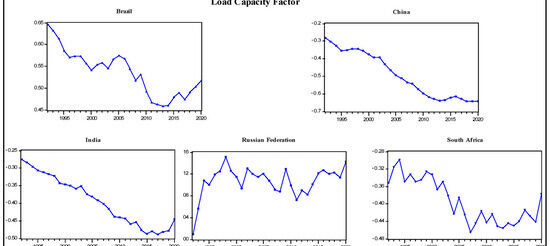Sustainability, Vol. 15, Pages 15083: The Impact of Agricultural Employment and Technological Innovation on the Environment: Evidence from BRICS Nations Considering a Novel Environmental Sustainability Indicator

Sustainability, Vol. 15, Pages 15083: The Impact of Agricultural Employment and Technological Innovation on the Environment: Evidence from BRICS Nations Considering a Novel Environmental Sustainability Indicator
Sustainability doi: 10.3390/su152015083
Authors:
Erti Jiaduo
Md. Golam Kibria
Nazhat Nury Aspy
Ehsan Ullah
Md. Emran Hossain
This study fills a gap created by previous environmental investigations by including the impact of agricultural employment and technology on the load capacity factor (LCF) rather than solely focusing on CO2 or greenhouse gas (GHG) emissions, which only measure from the demand side; LCF provides a complete picture of environmental degradation by evaluating both the demand side and supply side. This connection is moderated further by considering the renewable energy and natural resource rent impacts. In this analysis, panel econometric methods are incorporated, including the cross-sectional dependence test. This study uses the Pooled Mean Group–Autoregressive Distributed Lag (PMG-ARDL) model to evaluate the level of effect independent factors had on the LCF of the BRICS (Brazil, Russia, India, China, and South Africa) nations from 1992 to 2020 in the presence of a heterogeneous integration order. The estimations recognize heterogeneity in the effects of agricultural employment, renewable energy, natural resource rent, and technology on LCF, in the short run and long run. According to the empirical results, agricultural employment significantly enhances the LCF both in the short run and long run, implying that employment in agriculture improves environmental sustainability. However, increasing the use of renewable energy protects the environment from degradation only in the long run; it has no significant impact in the short run. On the contrary, natural resource rent and technology lead to a decline in environmental sustainability in the long run. Hence, this study recommends prioritizing renewable energy intake over other energies, providing proper incentives to motivate agricultural entrepreneurship to ensure a sustainable environment.
